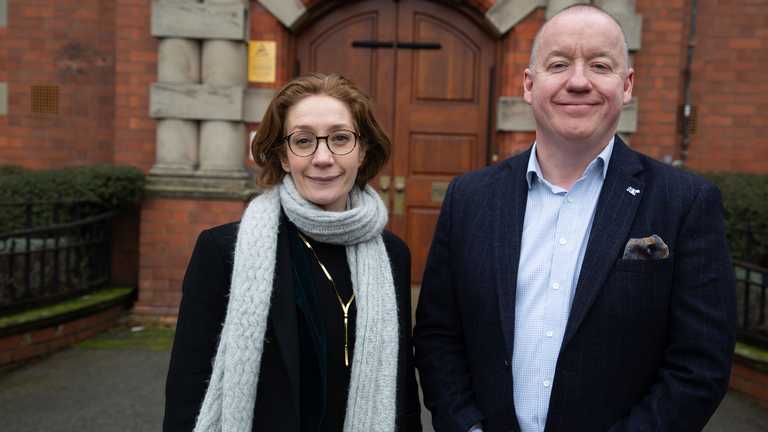

Loading search...
Loading search...
Loading site search...
Loading site search...
Loading site search...
Loading...
Loading site search...
Loading site search...
Posted 6 February 2013
Predicting the future is really quite tricky and in agriculture it’s even more difficult.
Watch the video on our YouTube channel.
Farmers and retailers need to continue building closer relationships to ensure the agri-food sector can overcome one of the biggest challenges facing the industry, a conference at Harper Adams University has been told.
Operating against a backdrop of increasing food prices and climate change, creating efficient food supply chains is vital to boosting productivity to ensure the sector can provide enough food for a rapidly growing population.
That was one of the messages from the European Food and Farming Partnerships’ (EFFP) West Midlands food and farming conference entitled ‘More With Less – Driving Performance, Sustainably’.
Up to 80 representatives from the agri-food industry attended the free event, sponsored by Defra and hosted by BBC Radio Shropshire’s Eric Smith, which was staged at the university on Tuesday.
One of the key speakers was EFFP Partner Stuart Thomson who presented evidence of how the global financial crisis that hit the world in 2008 has changed the industry and the way we now consume, produce, and procure food.
“Predicting the future is really quite tricky and in agriculture it’s even more difficult,” he said.
“What I do know is things are extremely tight and people are feeling the pinch at the moment.
“In 2008 there was a global financial crisis and what happened then is earnings dipped below inflation and stayed there.
“At the same time there were further problems. Food prices began to rise and have continued to.”
As a result of the recession continuing to bite, he said the way consumers shopped had changed.
“People really don’t buy food now unless it’s on promotion and supermarkets have picked up on this. I don’t expect consumers to return to past behaviour any time soon,” he added.
He stressed the importance of efficient food supply chains and said they were key to the growth of the sector.
“Before 2008 food security was not on the agenda. Farmers are now becoming more aware. We know as EFFP food companies are also more aware and more open to engaging with their suppliers,” he said.
“The market place is forming relationships but back in 2004 it was not really on people’s agenda. Supply chain relationships are now evolving and I think they will continue to evolve.
“I think in the future companies will be placing greater emphasis on the whole food chain.”
One success story highlighted at the event was marketing egg co-operative EggSell, formed in 2007 by East Yorkshire farmers to bring together free range egg producers and bridge the gap between them and the retailer.










We use cookies to ensure that we give you the best experience on our website. If you continue without changing your settings, we'll assume that you are happy to receive all cookies on the website. However, you can change your cookie settings at any time.